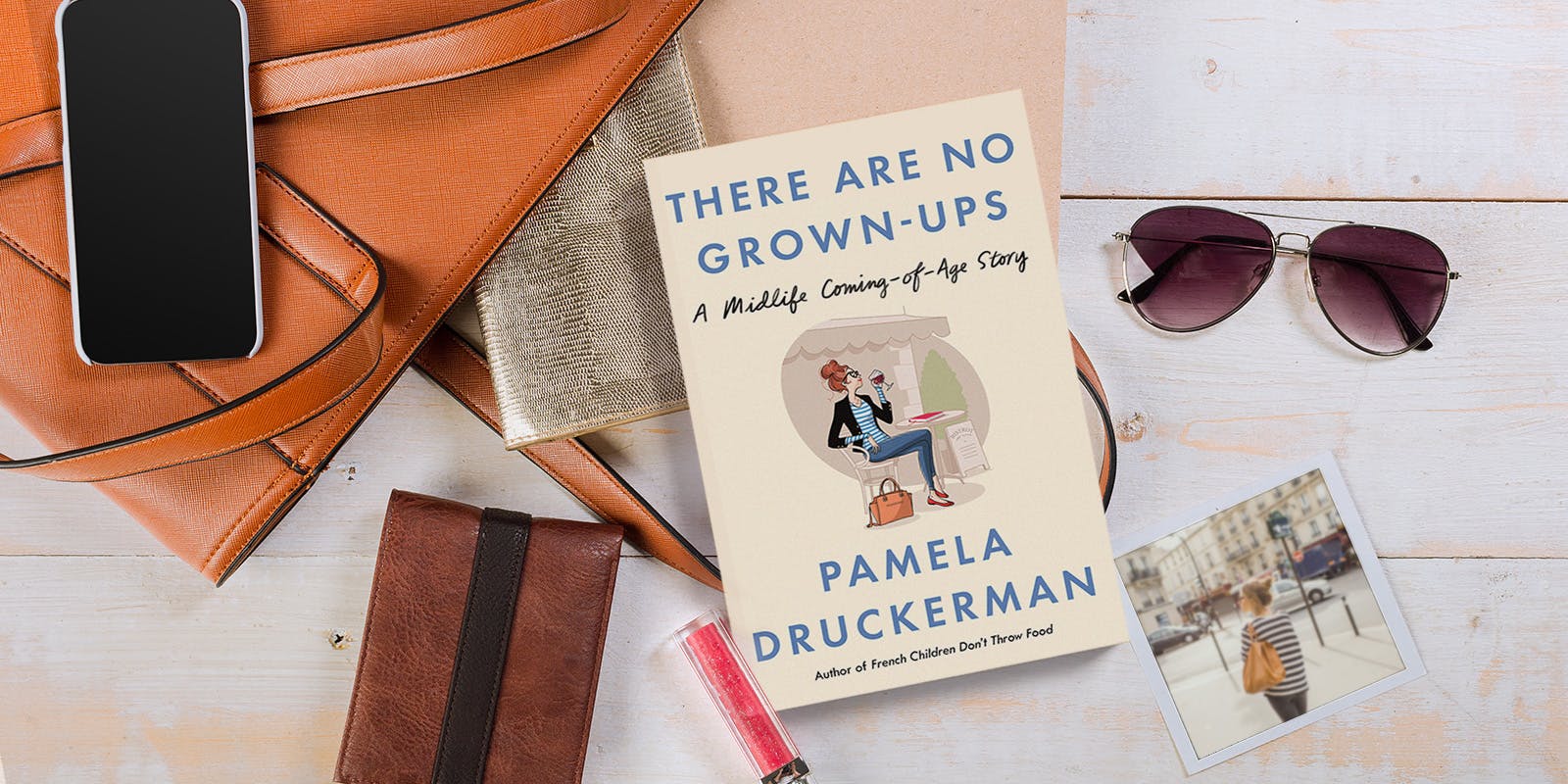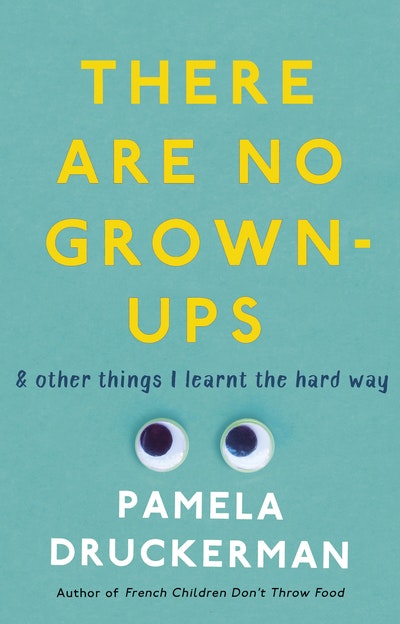Pamela Druckerman questions when she’ll ever likely grow out of it.
‘If you want to know how old you look, just walk into a French café. It’s like a public referendum on your face,’ Pamela Druckerman writes in the introduction to her book, There Are No Grown-Ups. As a newly arrived American expat in Paris in her early thirties, waiters referred to Druckerman ‘mademoiselle’ – technically ‘unmarried woman’, but default for ‘young lady’. Around the time she turned 40, however, the ‘mademoiselles’ ceased; waiters instead welcoming and farewelling her with ‘madames’. In the eyes of French people (or, at least, Parisian waiters), according to her face she had exited the realm of the young and entered a middle-age no man’s land.
Druckerman began to wonder what the forties were all about. Where was the gravitas or any form of symbolic resonance? Did other people feel like they were surrounded by adults when they were winging or even faking it too? So began her quest to find meaning in this middle-aged-est of decades. What emerges is a hilarious interrogation of the world as experienced by those teetering on the precipice of youth. In the passage below, Druckerman questions the very existence of real grown-ups at all.
If the modern forties are confusing, it’s also because we’ve reached an age that’s strangely lacking in milestones. Childhood and adolescence are nothing but milestones: You grow taller, advance to new grades, get your period, your driver’s license and your diploma. Then in your twenties and thirties you romance potential partners, find jobs and learn to support yourself. There may be promotions, babies and weddings. The pings of adrenaline from all these carry you forward and reassure you that you’re building an adult life.
In the forties, you might still acquire degrees, jobs, homes and spouses, but these elicit less wonder now. The mentors, elders and parents who used to rejoice in your achievements are preoccupied with their own declines. If you have kids, you’re supposed to marvel at their milestones. A journalist I know lamented that he’ll never again be a prodigy at anything. (Someone younger than both of us had just been nominated to the US Supreme Court.)
‘Even five years ago, people I met would be like, “Wow you’re the boss?”’ says the forty-four-year-old head of a TV production company. Now they’re matter-of-fact about his title. ‘I’ve aged out of wunderkind,’ he says.
What have we aged into? We’re still capable of action, change and 10K races. But there’s a new immediacy to the forties – and an awareness of death – that didn’t exist before. Our possibilities feel more finite. All choices now seem to exclude others. And there’s a now-or-never-mood. If we were planning to do something ‘one day’ – to finally change careers, read Dostoyevsky or learn how to cook leeks – we should probably get moving on it.
This new time line prompts a reckoning – sometimes a painful one – between our aspirational and actual lives. False things we’ve been saying for years start to sound hollow. It’s pointless to keep pretending to be what we’re not. At forty, we’re no longer preparing for an imagined future life, or collecting notches on our résumés. Our real lives are, indisputably, happening right now. We’ve arrived at what the German philosopher Immanuel Kant called the Ding an sich – the thing itself.
Indeed, the strangest part of the forties is that we’re now the ones writing books and attending parent-teacher conferences. People our age have titles like ‘chief technology officer’ and ‘managing editor.’ We’re the ones who cook the turkey on Thanksgiving. These days, when I think, ‘Someone should really do something about that,’ I realize with alarm that the ‘someone’ is me.
It’s not an easy transition. I’d always been reassured by the idea that there are grown-ups in the world. I imagined them out there curing cancer and issuing subpoenas. Grown-ups fly airplanes, get aerosol into bottles and make sure that television signals are magically transmitted. They know whether a novel is worth reading, and which news belongs on the front page. In an emergency, I’ve always trusted that grown-ups – mysterious, capable and wise – would appear to rescue me.
Though I don’t believe in conspiracy theories, I can see why people are drawn to them. It’s tempting to think that a cabal of grown-ups secretly controls everything. I understand the appeal of religion, too: God is the ultimate grown-up.
I’m not thrilled about looking older. But I realize what unsettles me most about becoming ‘madame’ is the implication that I’m now a grown-up myself. I feel like I’ve been promoted beyond my competence.
What is a grown-up anyway? Do they really exist? If so, what exactly do they know? And how can I make the leap to become one of them? Will my mind ever catch up with my face?













